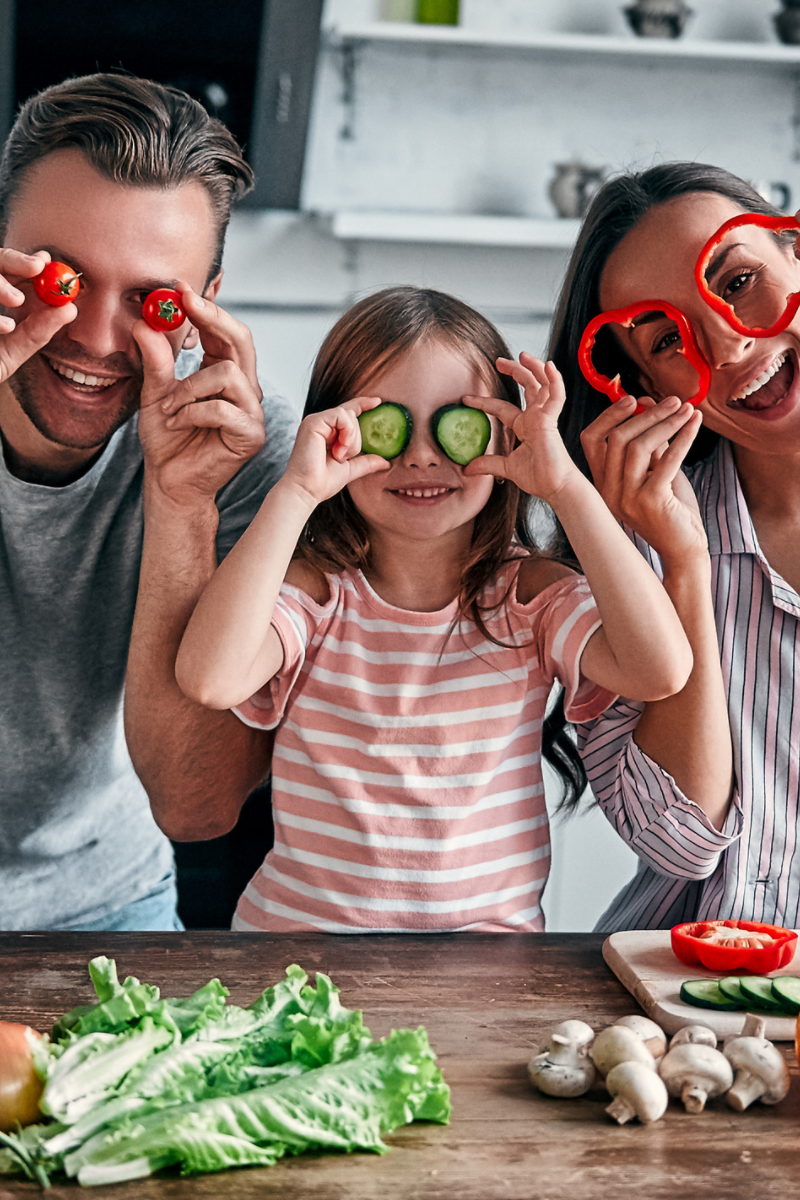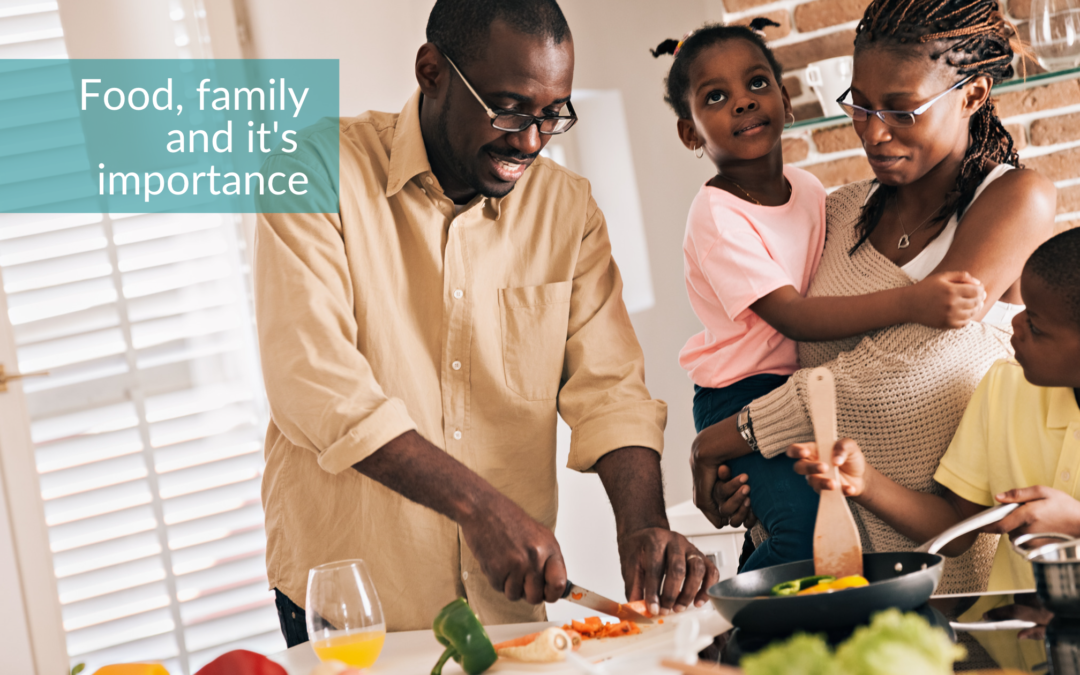Food, Family and Tribe
When we think of food many of us will have links to family, and family memories are often involving food
For me what comes to mind are various phrases and headings such as “Family food”, “Food with family”, “Family favourites”, “Family traditions”, “Feeding the family”, “Family celebrations”, “Food and memories”, “Family meals out”, “Food and family holidays”, “Family food rituals”, “Family feasts”, “Family festive celebrations” and so on and there’s more I am sure that you may think of too.
All these things come to mind as I think about these two words. All good hey? Sounds so positive and nutritious.
Having experienced the variety of physiological needs, meal timings, food preferences and various intolerances that exist in family meals, food and family can mean stress too.

There can be the negative experiences we can all have, food forced on us when younger age when perhaps we aren’t mature enough to tolerate or value, food that are chosen by our parents or grandparents, our children, and our partners, that aren’t what we want or that we know is good for us. Eaten because it’s just expected or perhaps there’s no other choice. Food that our family have had and eaten as habits and a family norm even though they may not be good for our own health. Family habits of eating at different times and places, alone or together in disharmony or chaos leading to a potential of a poor experience. Food and family maybe for us tinged with a negative feeling too. It’s complex.
Life is far more demanding than even as recent as 10 or 20 years ago with a lot more input from technology and expectation, nutritional advice, and health information overload. We often have little time free for long, relaxed meals and the preparation they need, even time to think and plan it all even if we knew what was best. It can leave us confused and unsure how to knit it all back to a place where food and family can work better together.
It doesn’t have to be that way. Or does it and do we need to rethink Family and Food for ourselves?
My next questions to myself are where does being healthy and family fit together and how can we make it work easily in the real-life situation?
There’s plenty of evidence to show that the benefit of connection and being part of a tribe benefits not only our physical health but our mental wellbeing, confidence, sense of belonging and esteem too. As family everyone benefits. The parents can use this time for positive parenting techniques and teaching things like respect, acts of service and good eating habits. The outcome of this set up around the table allows for us to show support, share knowledge and skill sets, lending a hand to provide the meal and creating a positive and supportive environment to eat, talk and get positive feedback. With family on side with a mission to eat together, whatever the food there’s benefits of connection, psychosocial support, and opportunity to personally express ourselves. There’s evidence to show that when this happens teens are more likely to eat more veg and fruit and less fast food too.
And it doesn’t have to be at dinnertime – this could be over a lunch or brunch together at the weekend. Whatever fits your own family dynamics.
And this is a meal where we are all present, all agreeing to be off our phones, or devices, or watching TV. This is just us and the food!
Add to this combination of connection and being present with good healthy food choices and it can be a recipe for massive success not only for the individual’s health and wellbeing but for what the family represents as an entity!
Where do Food choices fit into Family?
Food choices and can be handed down generation to generation, person to person,
Now, let’s get historical and ask where did the family meal begin its life?
Well, it seems for many years! Even as far back as the Egyptians, Greeks and then Romans, a place to eat with a makeshift table or ‘tabula’ for group of people was part of a meal, there was less comfort which grew over the years as life became less hostile and food more available. The place to eat then became a permanent table to eat upon solely dedicated to meals. At times the dining room has been a place of opulence and a statement of wealth. That said, having a dedicated table to eat at in my own life has been a part of getting more established and very much as part of family life. Setting the table and getting ready to eat together is often part of a feast or celebration.

The family meal developed more so in the last 100 years and has become used as a place to educate, speak, and share, and at times argue, punish and silence.
Now the family often living in the same home can find themselves challenged for time and space as more of us work from home and at all hours.
The evidence though is that the table, when used positively in this context, can be a powerful place for both individual benefit, family bonding, childhood development and a healthy sharing of both food and minds.
The Blue Zones are a number of places around the world where people regularly live to beyond 100 years of age in good health. This has been found to be due to 9 key behaviours, several of which are possible to do over a meal. The main ones being belonging, being in the right tribe, and eating plenty of plants. Therefore, meals eaten together could even prolong a quality life too!

Then there’s meal timings! With more of us learning and taking up the benefit of intermittent fasting we can find ourselves eating alone later in the day of we don’t plan well. The benefits of eating in this way could arguably be offset by the lack of connection and all that family can offer.
Food can’t be discussed I find in families now without the mention of the various self-imposed or health dependant restrictions to ingredients with more families having a mixture of vegan, veggie, flexi and non all wanting food to eat at the same time!
The Mediterranean diet is worth a mention too as much of the traditional meals occurring in the family setting and with an emphasis on enjoying the food together as well as consuming mainly non processed and plant rich meals with a dollop of olive oil and a little red wine to boot! There’s plenty to show that this way of eating benefits health for all the family too!
Are there other factors with meal times and food?
What about eating disorders, an ever-increasing problem in young people? Food and family with a child suffering from this horrid condition all experience the condition in their own way. It’s a potentially devastating condition for the person affected and can create chaos at the family dining table. When done well and part of a programme the mealtime and family can become part of the recovery and well as the prevention. Allowing the concerns and worries of the child to come to light before any mental illness gets its grip and fostering a feeling of family connection I have found to be so important. When a teenager is going through what can be a confusing time of life it is so vital yet easy to dismiss the importance of a family meal. This can help to mitigate the risk of the typical teen tendency to withdraw to their room and suffer in isolation. Having both flexibility over the specific food preferences as well as the structure of mealtimes can help. As someone who has experienced this first-hand I am very, very glad that as a family we hung on to the routine of a family mealtime throughout what was a very tough time. It created consistency and a strong message to all the family that this mattered to us as parents, for all the positive reasons outlined above, and then as a framework to begin to build back to recovery.

If you are having difficulties in this arena please reach out for help, ask your GP or look for books or support groups that can help.
There is a plethora of evidence and a growing science in culinary medicine that food can be not only healthy but act as medicine too. The general guide is to stick to whole food, plant predominant, wholegrain, and colourful diet rich in diversity of vegetables and fruit and avoiding processing and with minimal added sugar. We know the basics and there’s lots more to add here but that’s for another blog!
Now this is a developed world issue, isn’t it? We all know that there is a pandemic of obesity and chronic disease affecting us following us in the wake of our fast food and fast life living.
If we were struggling to get enough food and water, there would be no conflict with time. We would prioritise food. In these circumstances of a developing world setting, it is also likely that the family are likely to involved in both the creation and the preparation of any meal. It’s more likely that we would not be challenged with technology, and we would not be working from home sat too long. We would be eating more wholefoods and little processed high sugar options available.
But in the western and more developed world, families are subject to excesses, and the food providers ploys to get us eating more and more to making the food “blissy”, so we eat more than we need. The resultant obesity crisis and surge of chronic disease that comes from this lifestyle being the challenge we now face.
Yet I believe a return to some of these simple and more effective approaches to mealtimes and food are needed to improve not only our own health but that of our family as a whole and in turn society.
And lastly, how about ourselves and honouring us at the same time as our family?
How do we navigate al the demands of family life to ensure that we, ourselves thrive to be able to be at our best and living a healthy happy life?
These are my 14 top tips (that I regularly reflect and work on!) on how to benefit as an individual and for you to rethink Family and Food in your own life:
- Clear a space in your home to eat at a table together and make it the place you meet most days to eat your meals together.
- Turn off technology unless to share family information such as relevant photos or news that is part of the conversation.
- Eat food that you have created ideally from whole food and even do this together.
- Over cater on some days and use the leftovers to batch ahead for those busy days!
- Find easier quick recipes if time is tight and keep them handy – teach others how to make them too!
- Start with adding a new vegetable or one new recipe to try each week and maybe get the children involved choosing them
- Create time to talk and share the day, often only a few minutes is needed when done regularly, and with lots to gain!
- Talk as a family on how you can make this work long-term, when is the best time and easiest meal to have together? Start with one at the weekend and build from there
- Give children a chance to join in the conversation and take time to listen
- Let children do some prep and the putting away, choose their seats and serve others to improve esteem
- Tell others if there’s food you want or don’t want and allow flexibility and to honour your own likes
- Find recipes that can allow for all tastes eg make veggie mains and add meat or fish alongside for those who want it and more veg for those who don’t can mean less prep and you all eat together
- Revisit this regularly to see how you’re all going, as children grow new ideas can develop
- And above all celebrate and recognise each family member [including you!] to keep the process fun
If there is anything you have read anything within this article that you are struggling with please don’t hesitate to contact me.
Enjoy your day, look after your body, look after your family and remember you are all a tribe!
Bye for Now
Sue x

Book a FREE Curiosity call today
We can cover anything you would like to talk about and explore anything that is worrying you.
Book your place today and we can start your journey to a better future.
Make sure you are following me for all updates,
don’t forget to say hi!


Love it and will share.
Thanks glad you enjoyed it!